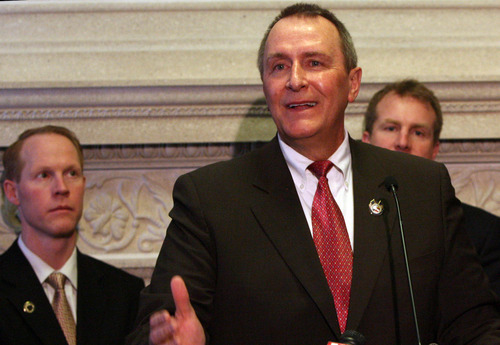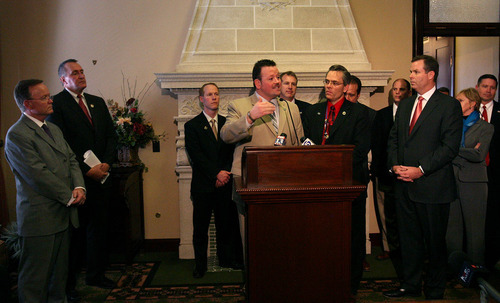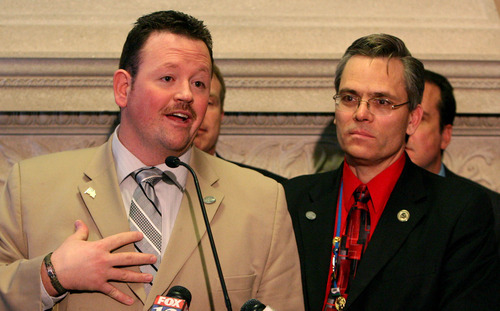This is an archived article that was published on sltrib.com in 2011, and information in the article may be outdated. It is provided only for personal research purposes and may not be reprinted.
President Barack Obama's signature health care overhaul is now unenforceable in Utah, the state's top lawyer says.
On Monday, a federal judge in Florida struck down the Affordable Care Act, siding with 26 states, including Utah, that sued to block it.
U.S. District Judge Roger Vinson determined that Congress overstepped its authority by compelling nearly all Americans to be insured or pay a fine. Because the insurance requirement can't be separated from the rest of the law, the entire statute must be voided, Vinson said.
The judge didn't issue a restraining order, but he said his ruling was the "functional equivalent" of an injunction, complicating implementation of the act in the 26 states that sued.
"It is our legal opinion that we are no longer bound by the act," said Utah Deputy Attorney General John Swallow. "That is the advice we'll give the governor."
Utah Gov. Gary Herbert is still weighing whether to continue participating in federal health reform.
"It would be premature to say the governor is committed to taking a specific course," said his spokeswoman, Ally Isom.
The state has already accepted federal planning grant money and begun implementing early provisions. And consumers are already reaping the benefits: parents are adding their married, college-age offspring and previously uninsurable sick children to their policies; seniors are taking advantage of Medicare subsidies; and small businesses have signed up for tax breaks.
Meanwhile, the Obama administration has made clear it will continue to enforce the law. Twelve other federal judges have dismissed challenges to the constitutionality of health reform; Vinson and a Virginia judge have ruled the insurance mandate is unconstitutional.
And the U.S. Department of Justice has indicated it will file an appeal and seek a stay of Vinson's order.
If that happens, states could seek an injunction. In phone conferences with other states, "We've discussed this," said Swallow, acknowledging, "we're on shifting sands."
Utah Attorney General Mark Shurtleff said if the Obama administration disagrees with the ruling, they should appeal immediately and not wait until the end of the filing period.
"We want to get this to the [U.S.] Supreme Court. We want this decided now," Shurt-leff said.
A Utah law outlawing federal intrusion on health care, sponsored last year by Rep. Carl Wimmer, R-Herriman, gave states standing in the lawsuit, said Shurtleff, who plans to use the same strategy on future public-lands and states-rights disputes.
Pro-reform advocates downplay Shurtleff's opinion as political posturing.
"Our leaders should avoid making any rash decisions that may cause irreversible harm. This issue will not be resolved in the 45 days of Utah's legislative session," said Judi Hilman, executive director at the Utah Health Policy Project.
And insurance and hospital executives say they'll stay the course for now.
"If the law were to be conclusively invalidated, we would re-evaluate the changes we have already made to determine if they would still be of benefit to our members," said Spencer Sutherland at Intermountain Healthcare's insurance arm, SelectHealth.
Said Regence BlueCross BlueShield spokeswomanGeorganne Benjamin: "There should be no impact to consumers."
Daron Cowley at Intermountain Healthcare, said, "The recent rulings introduce uncertainty. But [the hospital chain] will follow whatever is determined to be the law."







